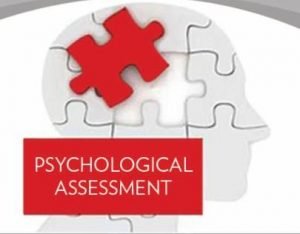Psychological Assessment Settings
By Jennifer Farley, PsyD,
Lindner Center of HOPE, Staff Psychologist

There are a number of reasons someone may undergo a psychological evaluation or assessment. The type of testing that is done depends on the individual’s functioning and the setting in which testing may be pursued. This article will look at the different settings of mental health assessments.
Types of Mental Health Assessment Settings
- Outpatient
- Inpatient
- Residential
- Children’s Assessments
Psychological Assessment in an Outpatient Setting
Testing from a clinical psychologist in a clinical outpatient setting can be pursued on their own or they may be referred from another clinician (such as a primary care physician or psychiatrist). This type of assessment is for patients with non-immediate mental health concerns. In this case, testing is pursued with the referral question in mind (such as whether someone has Attention Deficit/Hyperactivity Disorder, depression, anxiety, a learning disorder, dementia, cognitive problems due to a medical condition, etc). The psychologist tailors the tests to help determine the person’s functioning in the areas that could be affected by a cognitive or emotional disorder. Tests can range from intellectual assessments to personality measures to behavioral questionnaires (which can be completed by the patient themselves, parents, and/or teachers) to academic achievement measures. Clinicians such as neuropsychologists and developmental psychologists can do all these tests and then add additional measures specific to their specialization (such as when documenting problems related to a head injury or when evaluating for Autism Spectrum Disorder). The psychologist can use this information to make a diagnosis and provide recommendations for treatment of the condition. Often, such as for school-age or college-age patients, recommendations for academic accommodations are also provided.
Psychological Assessment In An Acute Inpatient Unit
Sometimes, psychological testing is completed for patients during an acute inpatient psychiatric hospitalization (when the patient is in a mentally unstable condition). In these cases, testing is often used for diagnostic elucidation to help guide decisions about types of medication to use. Recommendations may also be made about additional assessments or resources to pursue following one’s discharge from the hospital. The clinical psychologist completes these evaluations within a short time, since these acute hospitalizations last (on average) about 7 days, and there are usually just a few measures that are administered. Tests are specific to the question about the individual’s diagnosis and may only include emotional/personality measures.
Psychological Assessment in a Residential Setting
Another setting in which psychological testing may occur is within a residential psychiatric setting. This setting is for patients who are experiencing psychological distress that is not severe enough to warrant an acute inpatient hospitalization. Length of stay in a residential setting can vary from 10 days to several months, depending on the purpose of the stay (i.e., evaluation and/or treatment). The purpose of testing in a residential setting is to help comprehensively understand – by way of several different measures – one’s personality functioning, cognitive functioning (which can include neurocognitive skills such as attention, memory, and executive functioning), and other factors (such as external stressors, substance use, medical conditions, etc.) that have contributed to the patient’s condition(s). The patient’s internal strengths and weaknesses are explored, with the intention of making recommendations for how treatment can be tailored to work with the patient’s strengths to compensate for their weaknesses. The clinical psychologist works closely with the other members of the treatment team (such as the psychiatrist, social worker, and the therapists) to understand the patient, develop a treatment plan, and (if a longer stay) to begin implementing the recommendations. The patient’s progress is then monitored and, if needed, further testing can be done to help assess changes in the patient’s functioning as a result of the treatment.
Psychological Assessment in Childhood
In childhood, early observations of potential problems may come from teachers. Teachers may observe struggles in behavior such as impulsivity, talking or interrupting others during times when there is an age-appropriate expectation of silence, and/or oppositional behaviors towards others. Teachers may also be the first to wonder if a child has an underlying learning or attention disorder. If the teacher’s attempts to help the child are unsuccessful, the teacher may recommend testing in the form of a Multi-Factored Evaluation (MFE). Psychological testing may be part of this evaluation and can include intellectual testing and academic achievement testing by a school psychologist. Parent and teacher questionnaires may also be included in the MFE. Depending on the nature of the child’s observed difficulties, others (such as speech and language therapists and physical therapists) may do their own screening. If findings reveal that the student experiences problems that would make learning difficult, accommodations are then recommended and interventions and/or accommodations are then put in place through a 504 Plan or an Individualized Education Plan. It is noteworthy that clinical diagnoses are NOT made from this type of evaluation and findings and recommendations are specific to helping the child learn better.
Prior to any psychological testing, the patient (and/or his/ her family) should understand the purpose of psychological assessment and how it can be useful for guiding treatment and other recommendations.
Find out more information on what psychological assessment is here and why it is a critical step of the process towards finding a diagnosis and treatment plan.
Finding Help and HOPE
If you, or someone you know, is experiencing a mental health crisis, there is help available. The first step would be to consult with a health care provider or mental health care specialist. To see how Lindner Center of HOPE can help you decide on the best mental health assessment setting, reach out to us today. We can help you take the next steps.